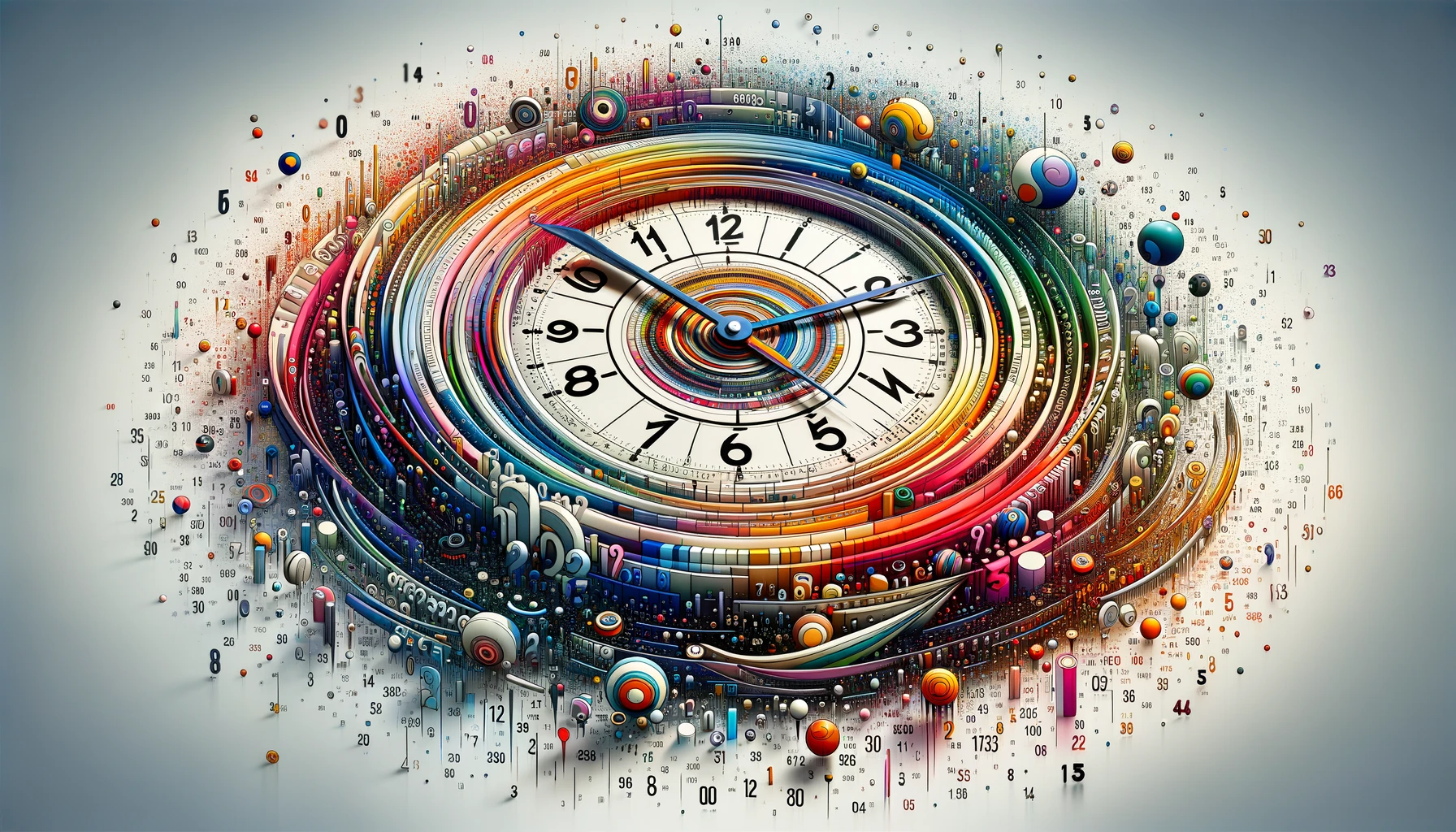Introduction
Tick-tock, tick-tock. Time is a fleeting and precious resource that we often take for granted. It slips through our fingers like grains of sand, leaving us wondering where the hours, days, and years have gone. Have you ever thought about how many minutes are packed into a single year? Prepare to be amazed as we dive deep into the concept of time and uncover fascinating insights about how it shapes our lives. Whether you’re an aspiring productivity guru or simply curious about the mysteries of timekeeping, this blog post will open your eyes to the incredible number of minutes in a year and show you how to make every second count! So grab your stopwatch, and let’s embark on a journey together through the vast expanse of time.
How many minutes in a day: Breaking down the calculation
How many minutes are there in a day? It’s a question that might seem simple at first, but the answer is more nuanced than you might think. We need to understand how time is measured to break down the calculation.
In our modern world, time is divided into 24 hours. Each hour consists of 60 minutes, and each minute has 60 seconds. So, if we multiply 24 by 60, we get 1,440 minutes daily.
But let’s not stop there! We can delve even deeper into this concept. If we consider that there are also leap years – which occur every four years – then one extra day must be accounted for. This brings us to a total of 1,441 minutes on those leap years.
It’s fascinating to contemplate just how many moments exist within each day. Every minute presents an opportunity for growth and productivity. Understanding the value of time allows us to make conscious decisions about how we spend it.
Knowing how many minutes are available daily empowers you to plan and prioritize effectively, whether studying, working, or pursuing your passions. Don’t let precious moments slip away unnoticed; seize them intentionally and purposefully.
So next time someone asks you how many minutes in a day remember that it’s not just about numbers on a clock – it’s about making the most of every tick-tock as they add up throughout your journey through life.
The importance of understanding time
Understanding time is a fundamental aspect of our lives. It allows us to plan, prioritize, and maximize every moment. Time is a finite resource that cannot be replenished or saved for later use. Therefore, it is essential to grasp its significance and value.
When we comprehend the importance of time, we become more mindful of how we spend it. We realize that each minute holds potential and should be well-spent. This awareness propels us to seek ways to maximize productivity and achieve our goals efficiently.
Moreover, understanding time enables us to create a sense of balance in our lives. By recognizing the limited hours in a day or year, we can allocate our energy towards activities that truly matter—spending quality moments with loved ones or pursuing personal growth endeavors.
Furthermore, knowing the value of time encourages us to develop practical time management skills. We learn to prioritize tasks based on urgency and importance, allowing us to work smarter rather than harder. This skill becomes particularly valuable when juggling multiple responsibilities or deadlines.
Comprehending the significance of time empowers us with the knowledge needed to make deliberate choices about how we utilize this precious resource. It prompts us to evaluate whether certain activities align with our long-term aspirations or are mere distractions from what truly matters in life.
How to make the most of your minutes in a year
One of the most valuable resources we have is time. And when it comes to a year, every minute counts. How can you make the most of your minutes in a year? Here are some tips to help you maximize your productivity and make every moment count.
Prioritize your tasks. Create a daily or weekly to-do list and rank them based on importance and urgency. This will help you focus on what truly matters and avoid wasting time on less critical activities.
Eliminate distractions. We live in an age where countless distractions are vying for our attention – social media notifications, emails piling up, or even idle chit-chat with colleagues. Minimize these interruptions by turning off notifications, setting specific work hours without distractions, or using apps that block certain websites during designated times.
Learn to delegate tasks when possible. One person can only do so much in a day. If functions can be done by someone else without compromising quality or efficiency, delegate them! This frees up more time for you to focus on higher-priority responsibilities.
Fourthly, take breaks strategically throughout the day. It may seem counterintuitive, but taking short breaks improves productivity as it helps prevent burnout and allows for mental rejuvenation. Use these breaks wisely – stretch your legs, grab a healthy snack, or engage in relaxation techniques like deep breathing exercises.
Last but essential is self-care; taking care of yourself physically and mentally ensures that each minute is well-spent towards achieving overall well-being and success in all areas of life.
By implementing these strategies into your daily routine, you’ll find yourself making the most of every single minute of a year leading to increased productivity and satisfaction with how you spend your precious time.
Time management tips for maximizing productivity

Time management is a crucial skill that can significantly impact productivity and overall success. By effectively managing your time, you can accomplish more in less time while minimizing stress and overwhelm. Here are some practical tips to help you maximize your productivity how many minutes in a year
1. Prioritize tasks: Start by identifying the most critical tasks that need to be done and focus on those first. This will help you stay focused and avoid wasting time on non-essential activities.
2. Set realistic goals: Break down larger tasks into smaller, more manageable ones and set specific deadlines for each. This will make the task feel less overwhelming and provide a sense of accomplishment as you complete each milestone.
3. Avoid multitasking: Contrary to popular belief, multitasking can decrease productivity as it divides your attention between multiple tasks, reducing focus and quality of work. Instead, concentrate on one task before moving on to the next.
4. Eliminate distractions: Identify potential distractions, such as social media notifications or unnecessary meetings, and find ways to eliminate or minimize them during dedicated work periods.
5. Take regular breaks: It may seem counterintuitive, but taking short breaks throughout the day can improve productivity by allowing your mind to rest and recharge.
6.Use tools for organization: Utilize digital calendars or project management software to keep track of deadlines, appointments, and priorities. These tools can help streamline workflow processes and keep you organized.
7.Delegate: If tasks don’t necessarily require your expertise or attention, consider delegating them to others with more capacity or skills.
Alternative ways to measure time in different cultures
Time is a universal concept, but how it is measured varies across cultures. While most of us are familiar with the standard hours, minutes, and seconds that make up our daily lives, other fascinating methods are used by different societies worldwide.
In ancient Egypt, for example, they divided their day into 12 hours of daylight and 12 hours of darkness. These “hours” varied depending on the season – shorter during winter and longer during summer. This system allowed them to adapt their schedules based on natural light rather than sticking to rigid time frames.
In Japan, a traditional method is known as “wadokei,” which translates to “Japanese clock.” Instead of using numbers or hands like conventional clocks, wadokei features images representing specific periods. For instance, a picture depicting cherry blossoms might indicate springtime.
Another intriguing approach can be found in Indigenous Australian cultures, where people often track time through seasonal cycles and natural phenomena such as changes in animal behavior or blooming plants. This deep connection with nature emphasizes living in harmony with the environment rather than being bound by strict schedules.
These alternative ways of measuring time remind us that our perception of it is not fixed but influenced by cultural norms and beliefs. They offer unique perspectives on how we can appreciate and value each passing moment differently.
By exploring these diverse ways of measuring time across cultures, we gain insight into various perspectives on life itself. It encourages us to question our relationship with time and consider whether we make the most of every minute.
Understanding these alternative approaches also promotes cultural appreciation and empathy towards others with different views on the meaningful use of time. We learn to embrace diversity in terms of culture and mindset regarding something as fundamental as tracking the passage of moments.
Exploring alternative methods for measuring time opens our minds to new possibilities and broadens our understanding of the world. It reminds us that.
Conclusion Reflecting on the value of each minute and encouraging readers to make the most of their time
As we come to the end of this article, it’s essential to appreciate each minute’s value truly. We’ve delved into how many minutes there are in a year, breaking down time into its smallest measurable unit. But time is immensely significant in our lives beyond just numbers and calculations.
Every minute presents us with an opportunity to learn, grow, create, connect, and achieve our goals. We must use those precious minutes that make up our days, weeks, months, and ultimately years.
Time management is crucial for making the most out of every day. By prioritizing tasks effectively and eliminating distractions, you can ensure that your minutes are spent productively towards achieving your objectives. Remember that small actions add up over time – even dedicating just a few focused minutes each day can lead to significant progress in any area of life.
Also Read: HAC Aldine





